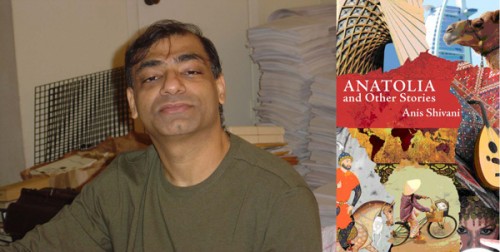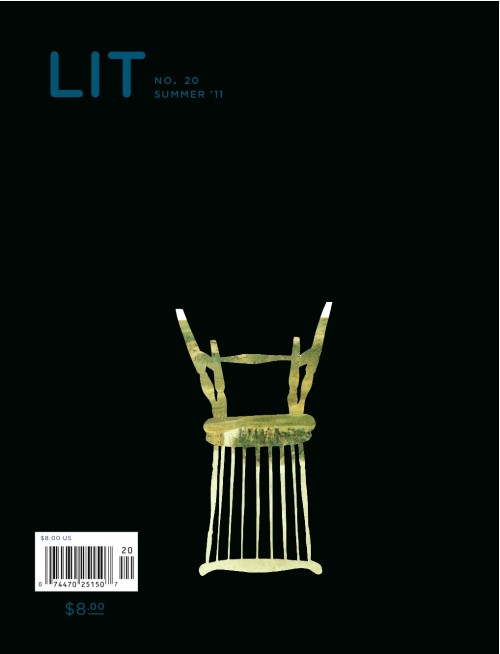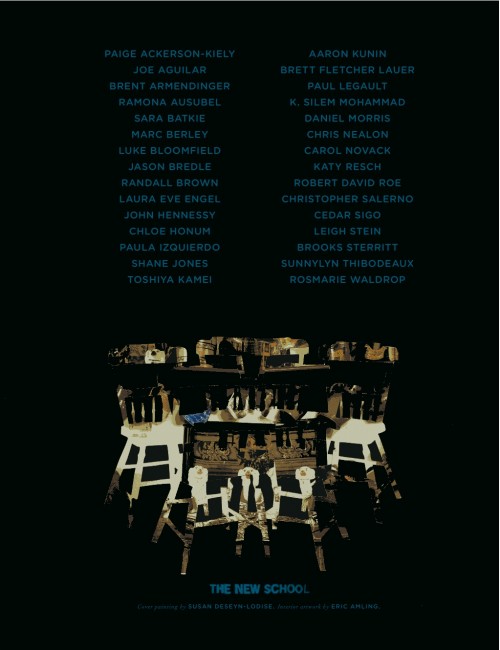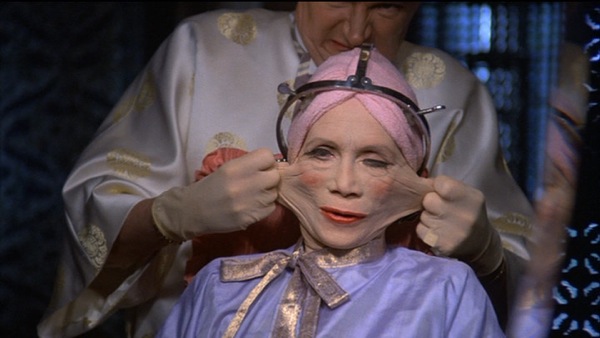A Conversation With Anis Shivani
I am always fascinated by people with whom I disagree, vehemently and sometimes violently, about matters of mutual interest. I have read some of the literary criticism Anis Shivani has written for The Huffington Post and in other venues and regardless of his subject matter, I always have a reaction, usually a reaction that is anything but subdued. Nine times out of ten, I disagree with what Shivani has to say about everything and anything. I suppose that is the mark of a critic who is doing their job effectively–inspiring a reaction, a conversation, a response to their ideas. I am especially curious about what makes Shivani tick because he seems so committed to his opinions on the one hand, and so committed to provocation on the other, though, as you’ll see, he would disagree with that latter statement. I don’t know that you can ever really know how someone thinks or what motivates them but I asked Shivani a few questions about contemporary literature, criticism, the role of the critic, and how he approaches his critical work. He had, as you might imagine, a great deal to say and I disagreed, as you might imagine, with much of what he had to say but as ever, I had a reaction, a response and we had an interesting conversation.
You do a lot as a writer–fiction, poetry, criticism. What is your first love?
Fiction has always been my first love. I write criticism to learn more about fiction. I could also easily have devoted myself to poetry, but although poetry is satisfying in its way, only in fiction does my soul fully engage. There’s no rush like writing fiction, and I can’t do it on autopilot, as it’s possible to do with criticism or even poetry at times. The feeling of euphoria and satisfaction from writing fiction is incomparable. Writing a successful novel is a great challenge, and you have to be a bit of a poet, a bit of a critic, a bit of a dramatist, a bit of a philosopher, a bit of a social scientist, to pull it off. Writing long poems is more exciting than short lyrics, but then one needs a lot of commitment for that. I’m in two minds about having written so many stories early in my career; on the whole perhaps it was a net loss, because I didn’t spend that precious time writing novels. The economics of publishing dictated that I write short stories for many years and get them published in the literary journals, but the story requires a different mindset than a novel and it’s difficult to get the story’s habits out of the mind when one is writing a novel. It teaches compression, which is both a virtue and a fault.
It’s only an unfortunate specialization that limits writers to operating within narrow genres—short stories about a specific region and milieu, for example, or novels dedicated to the same few characters, or lyrical poems relentlessly exploring one’s own ethnicity or geography—otherwise writers in other countries still write in different genres at the same time, and this has always been the case since the beginning of time—until, that is, the academic specialization of literary writing under university patronage in the U.S. in the late twentieth century. I think writers should see themselves as workers in the broad field of the arts—including even Hollywood or popular music, and certainly what used to be called literary journalism in every possible genre. Anything to break the rut, to push the mind toward new challenges so that writing doesn’t fall into preestablished grooves—which is very easy to do, based on the successful formulas in existence. Film is a particularly fruitful cross-fertilizer, as is painting. Really, the arts cannot function in isolation and shouldn’t be practiced and critiqued that way. It’s only unprecedented specialization that has created this unnatural situation, and the writer must be very conscious of that and work hard to break down the false institutional barriers preventing a catholicity, even eccentricity, of interests. The mind desires to switch between different levels of intuition and emotion and logic and these desires should be fed.
June 22nd, 2011 / 4:39 pm
Brazil is on @Max right now
Do you guys like that movie?
Do you guys have a premium movie channel package?
Do you guys watch Max After Dark, i.e., Skinemax?
I mean, how was your day?
yesterday it was golf wang, tomorrow it’s to be DEATH GRIPS
httpv://www.youtube.com/watch?v=Orlbo9WkZ2E
Borders is drunk
Just looking at this spam email Borders sent out in the night, trying to sell, wine. Just looking at it.
The Klondike by Zach Worton
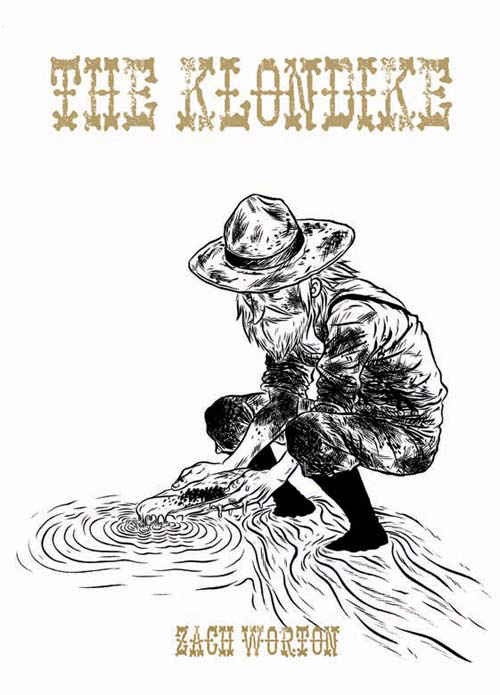 The Klondike is Zach Worton’s comic book (320pp, b&w, on sale now at Drawn & Quarterly’s website) about the Yukon gold rush. It’s historical fiction about a fascinating period of expansion, and it’s well researched. In an afterword, Worton talks about finding the right way to tell the story, which he figures to be about 80% accurate, and then lists a detailed bibliography for further reading. I’m interested in the way comics deliver narrative differently from prose, so I found the author’s note to be particularly interesting. The challenges are not disimilar.
The Klondike is Zach Worton’s comic book (320pp, b&w, on sale now at Drawn & Quarterly’s website) about the Yukon gold rush. It’s historical fiction about a fascinating period of expansion, and it’s well researched. In an afterword, Worton talks about finding the right way to tell the story, which he figures to be about 80% accurate, and then lists a detailed bibliography for further reading. I’m interested in the way comics deliver narrative differently from prose, so I found the author’s note to be particularly interesting. The challenges are not disimilar.
The first third of the book sets up all the characters and their objectives. These are in relatively short chapters. Because there are so many distinct people, I immediately thought that the book was going to be an encyclopedic look at separate historical figures, but before long Worton started to intertwine their stories. It was smart to establish things this way, because there are so many actors in the book. It’s like a Shakespearean history, in that it’s very easy to get lost with all the who’s-who. READ MORE >
June 21st, 2011 / 2:07 pm
So, wow, Yale just announced $150,ooo literary prizes that’ll be awarded starting in about a year and a half. Endowed by the late writer Donald Windham, who “specifically requested that writers with no academic affiliation be considered.” Here’s hoping prizes go to some surprising (in a good way) recipients.
Nick Mamatas’s sensational Sensation
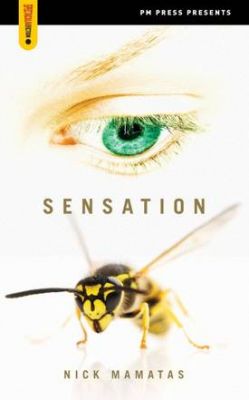
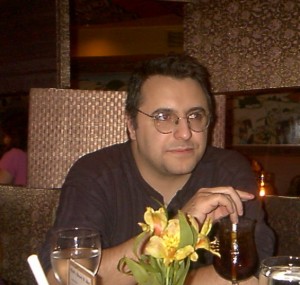
A webbed suspension. A stinging. A stunning. It’s stunning. I’m stunned and stung. It’s possible I’ve been infected.
Nick Mamatas’s Sensation is stunning. It’s sensational.
Ok, imagine a world with men of indeterminate ethnicity. Easy enough, right? Now, imagine these men are not made of flesh – like you and I are – but are mere veneers, flexible shells. Inside, thousands of spiders. Inside, these intelligent, mutant spiders control men. They are out to control the world. Or, to help the world. Or, at least, to prevent the wasps from taking over. No, not WASPs, but literally, wasps. From South America.
June 21st, 2011 / 10:40 am
Random Ass Live Reading Of Some Recent Books I Like #6
The reading is over.
I read from:
Fog Gorgeous Stag by Sean Lovelace
Cowboy Maloney’s Electric City by Michael Bible
The Village on Horseback by Jesse Ball
The Iguana Complex by Darby Larson
Sparrow and Other Eulogies by Megan Martin
The Book of Interfering Bodies by Daniel Borzutzky
Tongue Party by Sarah Rose Etter
Helsinki by Peter Richards
&
The Cow by Ariana Reines
By the time you get to the murder it’s going to seem like a cough: An Interview with Andrea Seigel
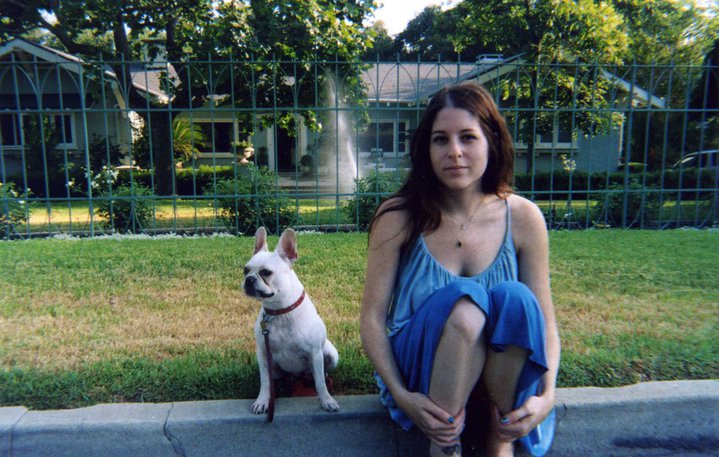
I met Andrea Seigel ~5 years ago while we were both at Bennington. Unlike most writers, she was more down to talk about soap operas and strange medical conditions and wicked dance moves than book junk, which those familiar with her work probably won’t find at all surprising. So far she’s published three books of young adult fiction, of a voice surprising I think to even that genre: often wry and dark and funny, though also carrying heavy material in a rather elegantly surreptitious way. Over the past several weeks we traded emails about her latest book, The Kid Table, as well as the influence of TV and screenwriting, narrative function, daily process, the influence of the internet, particularly twitter (of which, her feed is one of my constant favorites), and more.
BB: I remember when we were in school you said you would often write in front of the TV or with the TV on, and maybe that you couldn’t write without it that way? Is that right, and do you do that still? How does that work, or what does it allow you?
AS: i used to be like that and then i don’t know why, but i didn’t want to do it anymore. maybe it was getting high-speed internet– i didn’t used to have that, and now the combination activity is that i watch tv and fuck around on the internet. around 2008 i was still writing everything but novels with the tv on, like i wrote a screenplay and an sat audiobook that year. but i started writing my young adult book to complete quiet. you know, that could also have something to do with the fact that my boyfriend was basically living with me during that period, and then he was actually living with me, and we were in one room.
the reason i used to write with the tv on was because one, there weren’t enough hours of the day to get everything in that i wanted to get in, so i had to double up. and two, i used to feel that watching tv while i was writing helped me be less neurotic about writing because i’d be half thinking about a performance on “american idol” and half thinking about my book, and maybe this is a false memory, but i remember my first book getting written so easily and so fast that way, like i don’t remember ever being stuck.

